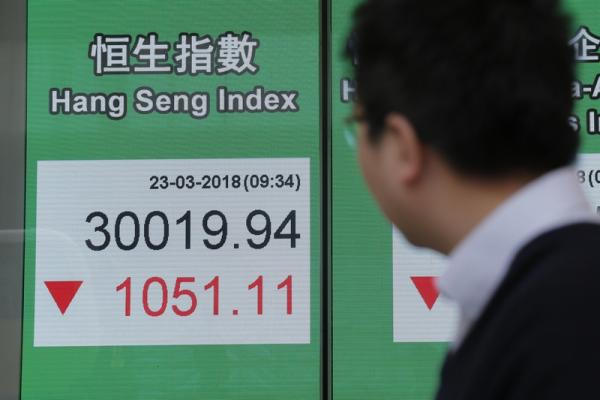Sana Biotechnology stock higher after Eric Jackson touts 100-bagger potential
Investing.com-- Most Asian stocks drifted lower on Thursday, extending recent declines amid persistent fears of higher U.S. interest rates, while Chinese stocks fell on renewed concerns over the country’s beleaguered property market.
Japan’s Nikkei 225 was the worst performer in Asia, losing 0.8% as rising Treasury yields pressured heavyweight technology stocks. Uncertainty before a key inflation reading on Friday also kept sentiment towards Japan under pressure.
Asian markets took a weak lead-in from Wall Street, as U.S. indexes saw an extended rout on concerns that the Federal Reserve will raise interest rates further this year. The Fed also recently signaled that it will keep rates higher for longer.
Chinese stocks fall on Evergrande uncertainty
China’s Shanghai Shenzhen CSI 300 fell 0.3%, while the Shanghai Composite index was flat. Hong Kong’s Hang Seng shed 0.7%, with property stocks leading losses after trading in shares of embattled developer China Evergrande (HK:3333) was suspended.
Media reports said this week that Evergrande’s founder and chairman Hui Ka Yan had been placed under police watch. The reports came shortly after the firm said one of its Chinese units was under investigation.
The news ramped up concerns more government scrutiny towards China’s property market, which is already reeling from an extended cash crunch and potential bankruptcies in its biggest players. The sector accounts for roughly a quarter of China’s economic growth.
Evergrande’s suspension dampened sentiment towards Chinese markets before the week-long Autumn festival holiday. Still, the holiday is expected to offer some support to the Chinese economy from increased consumer spending.
Markets were also awaiting purchasing managers’ index data from China, due over the weekend, for more cues on economic activity in the country.
Uncertainty over China saw Australia’s ASX 200 index trim most gains for the day. Data also showed that Australian retail sales grew less than expected in August, amid continued pressure from high interest rates and inflation.
Elsewhere, futures for India’s Nifty 50 index pointed to a flat open, with the index nursing steep losses in recent weeks after it plummeted from record highs. But the Nifty was still among the best performers in Asia for September, up 2.4%.
Fed fears, China uncertainty put Asian stocks on course for September losses
Most Asian stocks were set to close lower for September, with a bulk of losses coming over the past week after the Federal Reserve flagged higher interest rates. The move battered global stock markets, given that higher rates point to tighter monetary conditions and less attractive returns on risk-driven assets.
The Hang Seng was among the worst performers through the month, down 3.4% on its heavy technology exposure, while the ASX 200 was also set for an over 3% decline.
China’s two main indexes fell between 0.6% and 1.5% in the month, and were trading close to annual lows. Japan’s Nikkei 225 shed 1.9% in September.
Markets were also rattled by concerns over an economic slowdown in China, especially as its property market faced renewed headwinds.
